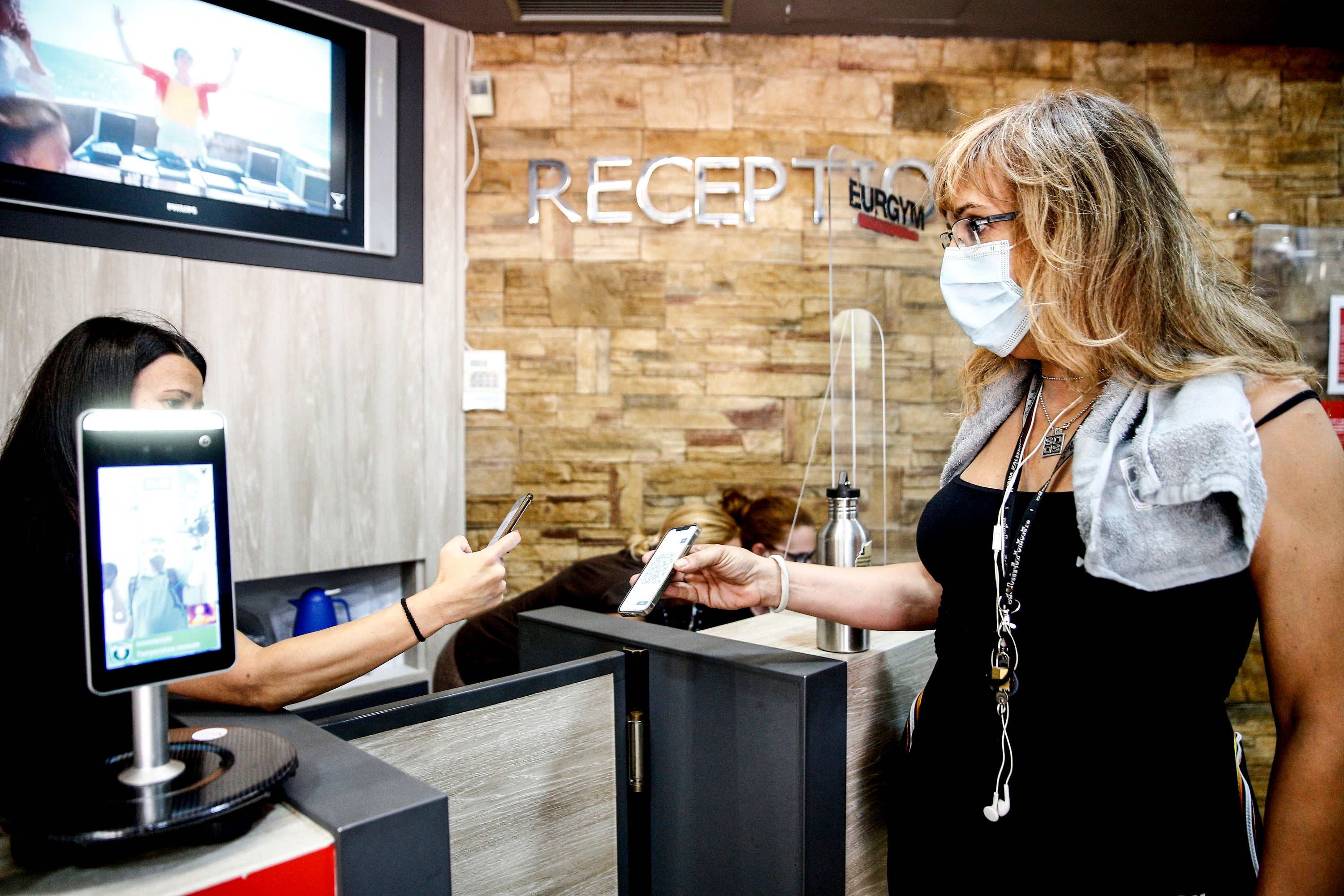Italy to impose some of strictest measures in world requiring all workers to show Covid green pass
The mandate will cover 14 million private sector workers and 3.4 million in public jobs across the country

Your support helps us to tell the story
From reproductive rights to climate change to Big Tech, The Independent is on the ground when the story is developing. Whether it's investigating the financials of Elon Musk's pro-Trump PAC or producing our latest documentary, 'The A Word', which shines a light on the American women fighting for reproductive rights, we know how important it is to parse out the facts from the messaging.
At such a critical moment in US history, we need reporters on the ground. Your donation allows us to keep sending journalists to speak to both sides of the story.
The Independent is trusted by Americans across the entire political spectrum. And unlike many other quality news outlets, we choose not to lock Americans out of our reporting and analysis with paywalls. We believe quality journalism should be available to everyone, paid for by those who can afford it.
Your support makes all the difference.A Covid green pass will soon become mandatory for millions of workers in Italy’s public and private sectors in what are seen as some of the strictest domestic anti-Covid measures to be implemented in the world.
Workers will have to show passes to access their workplaces starting from 15 October, according to a new decree adopted on Thursday by Italian prime minister Mario Draghi’s government.
The pass will be proof of vaccination, a negative test or recent recovery from a coronavirus infection in the last six months, and will be required for all categories of workers.
Failure to comply with the new rules will attract severe penalties, including suspension without pay and fines. But workers cannot be sacked, said ministers after the government approved the decree.
Businesses and employees will invite a fine of 600-1,500 euros (£512-1,280) if they are found to ignore the rules and allow employees without the passes to work.
The pass has for some weeks already been mandatory to access train stations, cinemas, gyms and other public places in Italy.
While Slovenia and Greece adopted similar measures this week, Italy’s 2-trillion-euro (£1.7 trillion) economy encompasses a greater number of people who will have to follow the strict rules.
The mandate will cover 14 million private sector workers and 3.4 million in public jobs across the country, in an effort to boost vaccinations in one of the countries that was worst hit by Covid.
“Nothing like this has been done in Europe... we are putting ourselves in the forefront internationally,” said public administration minister Renato Brunetta.
The government expected an “enormous” acceleration of its vaccination programme as a result of the decree, said Mr Brunetta, who believes that more people will get inoculated before the rules come into effect in a month’s time.
The country has fully vaccinated nearly 68 per cent of its 60 million population and 74 per cent with at least one Covid vaccine shot after suffering one of the most devastating outbreaks early on in the pandemic, though it also has a vocal anti-vaxxer movement which predates the pandemic.
Italy has the second-highest Covid death toll in Europe, trailing Britain, with more than 130,000 people dying from Covid since the beginning of the pandemic.
The country was one of the first in the western world to face the Covid crisis and became the epicentre of the pandemic in Europe in November last year, when it reported a peak of more than 40,000 infections in a single day.
The government says it is imposing some of the world’s strictest anti-Covid measures so that the country does not have to face another national lockdown.
But there have been sporadic protests against the strict measures in recent weeks.
Underscoring the importance of vaccines, Italy’s health foundation Gimbe said in a report on Thursday that almost all Covid hospitalisations currently are of unvaccinated individuals.
The report said vaccinations have reduced death rates in Italy by 96 per cent, hospitalisations by 93 per cent and intensive care unit admissions by 95 per cent.
The measures, ministers said, were to bring Italy’s economic recovery back on track. The country’s gross domestic product is expected to grow about 6 per cent this year.
The ministers also underscored the importance of getting vaccinated by pointing to new possible virus variants.
The green pass has been supported across the political spectrum in the country, but critics have raised concerns about a gradual and ongoing erosion of civil liberties during the pandemic.
Meanwhile, The Netherlands has said it will require proof of a COVID-19 vaccination or a recent negative coronavirus test for entry to bars, restaurants, museums, theatres and other cultural events from Sept. 25, as almost all social distancing measures are dropped.
A narrow majority of Dutch parliament late on Thursday rejected a motion calling on the government to change its mind about the ‘corona’ pass, as Prime Minister Mark Rutte said it was needed to prevent a new wave of infections.
“We are still in a dangerous situation. Not doing this would bring great risks”, Rutte said during a heated debate in parliament.
Opponents from across the political spectrum questioned the need for the corona pass, which many said was a ploy to stimulate vaccinations, despite repeated promises by the government that injections would never be mandatory.
Additional reporting from wires
Join our commenting forum
Join thought-provoking conversations, follow other Independent readers and see their replies
Comments